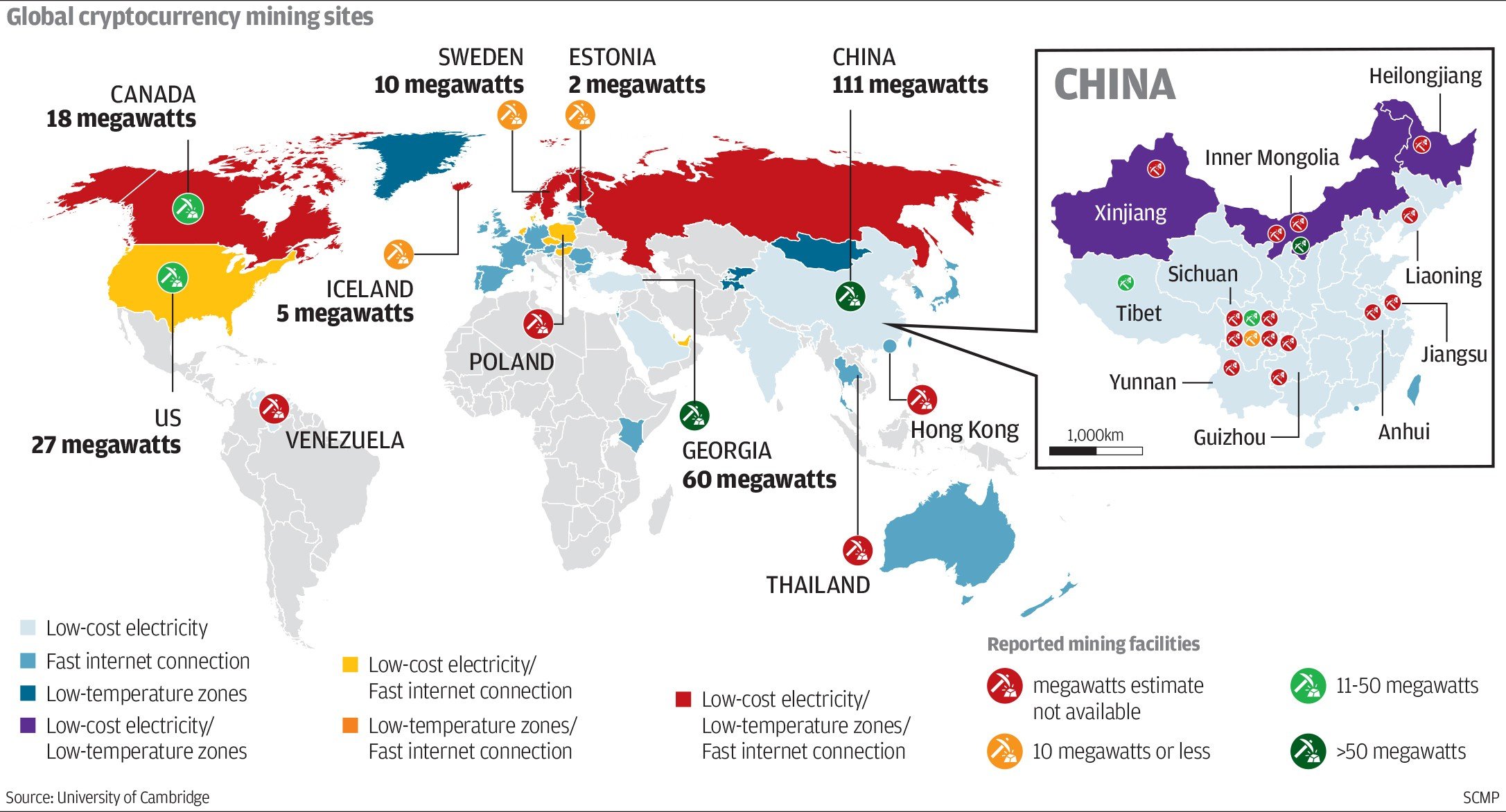
Is it legal to mine bitcoins in canada - seems magnificent
This article discusses virtual currency and virtual currency mining. We refer to these generally as “bitcoin” and “bitcoin mining,” as bitcoin is the most common virtual currency.
The Canada Revenue Agency’s only publication on bitcoin mining is currently four years old. This short technical interpretation, issued on March 28, 2014,1 addressed three key issues related to mining bitcoins:
- personal endeavour or commercial activity;
- income recognition; and
- inventory vs. capital property.
The three issues can be described by the following three questions:
- Is bitcoin mining taxable?
- When is bitcoin mining taxable?
- How much of bitcoin mining is taxable?
The 2014 technical interpretation touched on these questions but lacked sufficient depth. In this article, we review these three key issues and provide some additional clarity.
Personal endeavour or commercial mining: is bitcoin mining taxable?
The Canada Revenue Agency (CRA) refers to the Supreme Court of Canada’s decision in Stewart v. The Queen2 to determine if bitcoin mining is considered a personal endeavour (not taxable) or a commercial activity (taxable). The Supreme Court’s decision states that, “in order for an activity to be classified as commercial in nature, the taxpayer must have the subjective intention to profit and there must be evidence of businesslike behaviour which supports that intention.”
In order to ascertain the subjective intention to profit, the Court concluded that if the activity contains no personal element it is presumed to be a commercial activity (a source of income). The unique facts of each case will be relevant in this determination.
Generally speaking, bitcoin mining for personal pleasure has two fundamental aspects to consider:
- Mining successfully can be capital- and energy-intensive, making it financially difficult to mine for personal pleasure.
- The actual mining process itself does not require any human interaction, distinguishing it from other activities that are sometimes considered hobbies, such as horse breeding, for example.
Aside from the rare individual mining bitcoin out of scientific curiosity, it would be difficult to argue that bitcoin mining is a personal endeavour.
Income recognition: when is bitcoin mining taxable?
In the 2014 technical interpretation, the CRA stated:
Where a taxpayer mines bitcoin in a commercial manner, in computing the taxpayer's income from the business for a taxation year, the value of property described in the inventory at the end of the year must be determined. Section 10 of the Income Tax Act (Act) and Part XVIII of the Income Tax Regulations set out the rules pertaining to the valuation of a taxpayer's inventory for this purpose.
In most cases, either of the following two methods of valuing inventory is available:
- Valuation of each item in the inventory at the cost at which it was acquired or its fair market value at the end of the year, whichever is lower.
- Valuation of the entire inventory at its fair market value at the end of the year.
Other methods of valuing inventory may be available or required depending on the type of business. For example, property described in the inventory of a business that is an adventure or concern in the nature of trade must be valued at the cost at which the taxpayer acquired the property.
Based on this interpretation, the income recognition of bitcoin mining operations is treated like an actual mining business (e.g. a gold mine), where the resource is mined for sale. However, this interpretation does not properly reflect the fundamental principles behind the technology of cryptocurrencies – the “block chain network.”
The “mining” analogy used in the marketplace provides an easy way to explain to the general public how bitcoin is created, but commercial miners are actually in the business of providing the service required to maintain the blockchain network in exchange for a reward: bitcoin. This service is commonly referred to as “proof of work” and involves solving and validating mathematical computations, which is at the heart of the blockchain technology used by bitcoin. The receipt of the bitcoin would be compensation for the service that is rendered.
Given that bitcoin commercial miners actually contribute to the security and validity of the network in exchange for a reward, it would be more appropriate to recognize the revenue as an exchange of service. Thus, the revenue should be recorded in Canadian dollars at the spot price when the bitcoin was received. This is easier said than done, however, given that the trading price for bitcoin can vary significantly between exchanges. Without any guidance from Canadian authorities on the best way to value bitcoin when received, it is up to the taxpayer to determine a reasonable and consistent method for valuing their bitcoin received from mining operations. One suggestion from the Swiss Federal Tax Authority is to average the prices across some of the larger exchanges. (The SFTA uses up to 12 exchanges in the averages posted on its website.)
Inventory vs. capital property: how much is taxable?
Immediately after the bitcoin is earned and the revenue is recognized, a determination must be made on how to hold the bitcoin asset (i.e. the holding period). The holding of the bitcoin, which is dependent on the miner’s intentions, determines the tax results in the future when it is eventually sold, consumed or revalued.3 There are three methods of holding bitcoin:
- active inventory;
- speculative inventory; and
- capital property.
The miner’s intentions are supported by evidence showing the “level of activity” in holding the bitcoin. Bitcoin that is managed on a regular basis with the intention of maximizing the profit on sale is considered active inventory, resulting in active business income subject to the inventory valuation principle in subsection 10(1) of the Income Tax Act. Bitcoin that is not managed and not available for sale at a speculative price is considered capital property, resulting in capital gains treatment (50 per cent taxable). Somewhere between those two extremes is speculative inventory, where the bitcoin is not managed on a regular basis but is monitored with the intention of selling for a profit at a speculative price. The dividing line between the three methods of holding bitcoin is not always clear, but there is case law providing some guidance. Bitcoin determined to be speculative inventory will result in business income without application of the flexible inventory valuation method in subsection 10(1).
Determining the appropriate methodology depends on the subjective intentions of the miner. Bitcoin miners should keep documented evidence to support their intentions, particularly when they wish to hold bitcoin as capital property. The election under subsection 39(4) that allows permanent treatment of gains and losses as capital gains and losses rather than fully includable or deductible business income does not apply, as cryptocurrency does not meet the definition of Canadian securities.
If you are involved in commercial bitcoin mining, contact your Collins Barrow Advisor to ensure that your operation is properly recording its transactions.
Footnote
1 TI 2014-0525191E5.
2 2002 SCC 46.
3 If the bitcoin is held as active inventory then section 10 would apply allowing the revaluation of inventory at the end of each taxation year.
The content of this article is intended to provide a general guide to the subject matter. Specialist advice should be sought about your specific circumstances.


Sorry, that: Is it legal to mine bitcoins in canada
| FIAT HITBTC | 106 |
| Is it legal to mine bitcoins in canada | Double spending bitcoin problem |
| GOBYTE BITCOINTALK | |
| How to set up a bitcoin address |
-
-
-